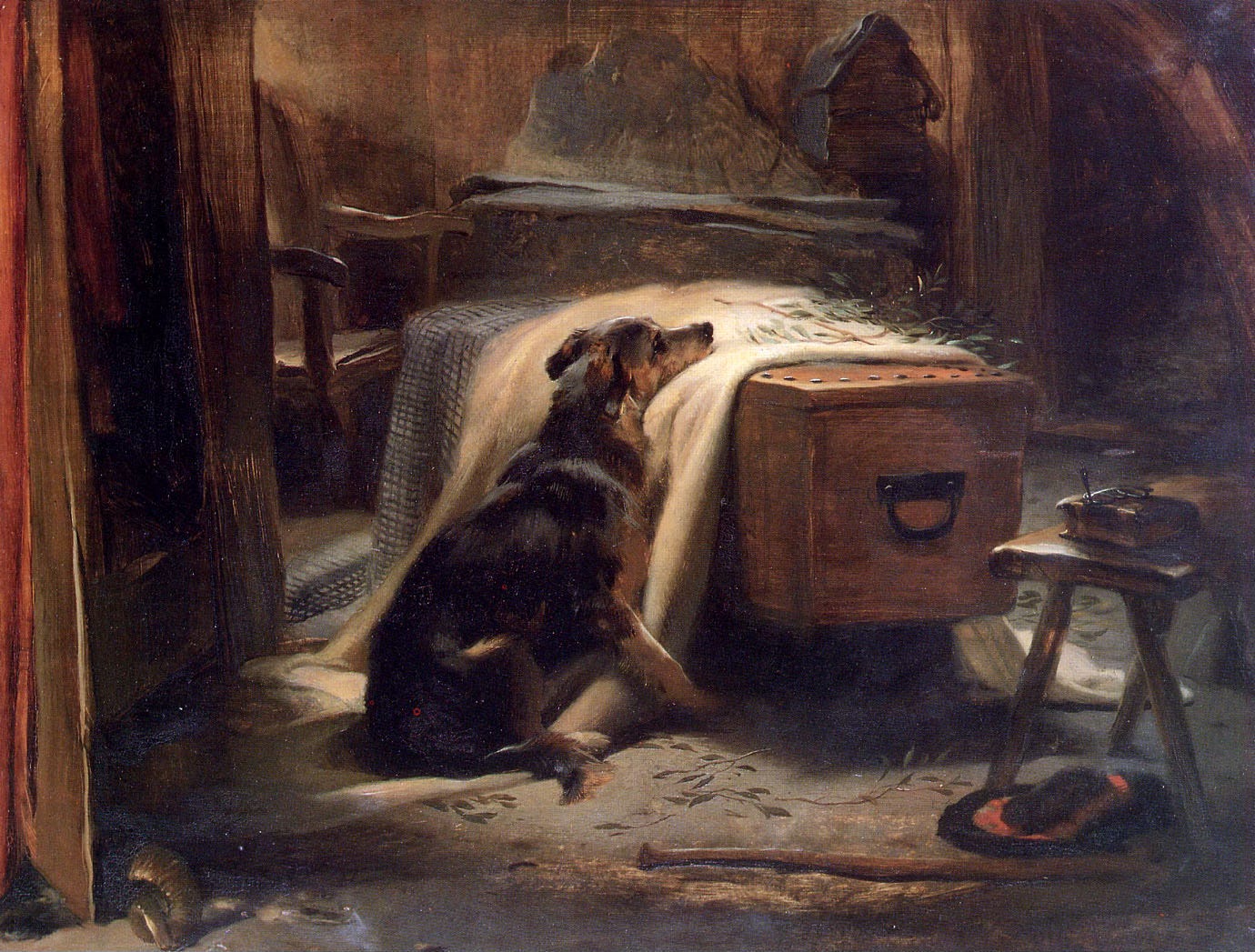How Dogs Make Us Human
The Logic of the Human versus the Logic of the Dog
For most people, seeing someone meet a violent and premature death is enough to cause a bit of reflection. For some, neither a hundred corpses, nor a thousand, nor even a million can cause the least bit of reflection.
These are those who fall outside the fold of humanity.
Napoleon did not seem to care for the millions of human souls sacrificed on the altar of his ambition. The Napoleonic Wars ran from 1803 to 1815. Possibly over three million combatants were killed as well as nearly three million non-combatants—men and women, elderly and infants—who happened to get in the Emperors way. There were about one billion people on earth when he led these wars, “which means Napoleon was possibly responsible for the death of a half percent of all mankind at that time.”1
I cannot conceive how many corpses he must have seen after each battle. As a General surveying his domain, a Maker of History, a God of War—a God only in the sense that he exists outside humanity, above humanity—he must have stepped majestically over the carcasses of his enemies, his countrymen, and his soldiers.
And yet none of it shook him.
What then brought this cold hearted son of a bitch into the fold of humanity?
A dog.
Napoleon was inspecting the battlefield at the end of his Italian Campaign. He gazed upon the golden fields wet with the crimson blood of tens of thousands of dead and dying men. Suddenly, one stood out to him. A small dog sat near it, crying and licking the dead man’s hand. Napoleon wrote: “This soldier, I realized, must have had friends at home and in his regiment, yet he lay there deserted by all except his dog… I had looked on, unmoved, at battles which decided the future of nations. Tearless, I had given orders which brought death to thousands. Yet here I was stirred—profoundly stirred—stirred to tears. And by what? By the grief of one dog. I am certain that at that instant I felt more ready than any other time to show mercy toward a supplicant foeman. I could understand just then the tinge of mercy which led Achilles to yield the corpse of his enemy, Hector, to the weeping Priam.”2
This quote is striking on a number of levels, but I am left with a single question:
How do our quadrupedal kin make us human?
His quote, on my second reading, almost struck me as a contradiction. It is significant he equated a canine with Priam, a dog’s mourning to human mourning, when it is humans who act like demons and dogs who act like an angels. So why would a dogs grief inspire him to treat humans better? And why did this dog-human transference come so naturally to him?
Well, the dog was the one creature that was not expected to be at the dead man’s side, and yet there she was. Friends—gone. Regiment—missing. Oaths—forgotten. But the dog stayed, and stood guard for the departed soldier, crying with no expectation to be heard, crying with no possibility of resurrecting the dead, crying for no other reason than because her suffering was pure and noble and good.
What then?
Is this not the most uncut, unfiltered, unparalleled expression of devotion imaginable? Is this not evidence of the intensity and purity of devotion we, too, are capable of, but so often fail to live by?
The Logic of the Human is that our lives, wretched or blessed, will be epic; that we, wretched or blessed, will have time to figure things out; that at some point our dreams will come true; that the miserable halfwits around us are not worth slowing down for; that we will surely win great victories, a place in the history books, a bit of revenge, a lottery ticket, a vacation home.
The point is we all have a bit of Napoleonic ambition within us.
The Logic of the Dog, on the other hand, laughs at these paltry fictions dancing in a few neurons in a sponge in a bit of skull bone. And why would the dog not laugh? What remains when mind and matter clash? Does money descend from the heavens? Does a beach house materialize from the ether? Does the applause and approval and adoration of the masses thunder as we walk down the street? No. And if the gods deem us worthy and grant us such things, what are all these things worth in comparison to the devotion of a dog? A bit of fur-on-skin? An infinity of love captured in the moment dog-pupil and human-pupil make contact? Nothing.
What then remains when mind and matter clash?
How we act. And it is this the dog sees. The dog does not care if we conquer the European continent, if our name is never forgotten, if we get that beach house, or if we build an illustrious Instagram following. The dog cares only if we possess an ounce of decency. And if we do, the dog puts its soul in our palms, stands by our side, and swears a solemn oath to stay there till death do us part—and then beyond, if need be.
It is a fact that “The weakness of a soul is proportionate to the number of truths that must be kept from it.”3 Just as Carson turns his eyes on me, I can see the mourning mutt turning its all-knowing eyes on Napoleon—on all of us—and saying: Do not have a weak soul and do not hide from the truth: Your time here is limited—your yesterday is dead and your tomorrow is an if. What you do today is what will define your entire life. If you allow your ambition to betray your devotion to others then you are corrupt. If you allow your hopes to blind you to the bipedal beings around you then you are crooked. If you hide from the truth that you can always give a damn just as I will always give a damn, then if you meet your end in some god-forsaken field or street tomorrow you will have missed the entire point of your existence.
Maybe this is why Napoleon was so shaken: because that nameless corpse on the war field achieved something more pure and noble in his short tenure on this earth than the great Napoleon had in all his victories and massacres and parades—a soul decent enough to warrant the mourning of a mutt.
The dog is the anchor of our humanity.
Of what we can be. Of what we ought to be.
I believe in my bones if we study the dog as the general studies the field and the sailor the sea, our quadrupedal kin will teach us how to be human.
If you enjoyed this, please consider adding a like and restacking this essay.
My mission is to challenge, to question, and to root out a bit of excellence.
If you feel called to support this mission, please consider becoming a paid subscriber.
Thurston, Mary Elizabeth. The Lost History of the Canine Race: Our 15,000-Year Love Affair With Dogs. Andrews and McMeel, 1996
Hoffer, Eric. The Passionate State of Mind, and Other Aphorisms. Harper & Row, 1955





One of my favorite bumper stickers, and a goal worthy of aspiration: “I strive to be the person my dog thinks I am”.
That was beautiful, Sam.